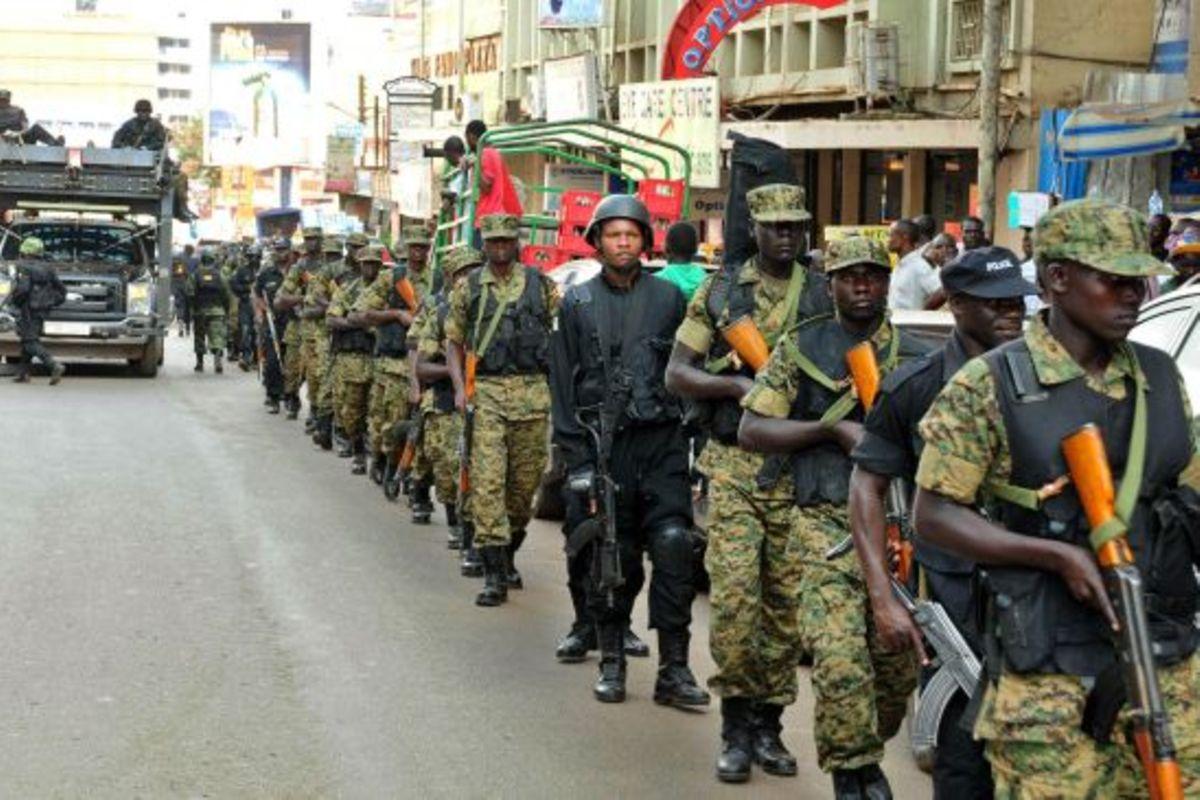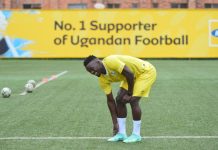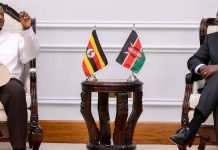By Faridah N Kulumba
Africa-Press-Uganda The Uganda People’s Defence Force (UPDF) is the military of the Republic of Uganda. Like any other army’s role, The UPDF’s roles are promoting national unity and protection, protection of national sovereignty, independence, and territorial integrity; protection of fundamental human rights and freedom, and protection of Uganda’s natural resources, under the commander-in-chief the President of Uganda. The Uganda army is involved in several peacekeeping and combat missions in the region, with commenters noting that only the United States Armed Forces is deployed in more countries. Uganda has soldiers deployed in the northern and eastern areas of the Democratic Republic of Congo (DRC), in Somalia and South Sudan. The democratic governance of the security sector argues that the intelligence sub-sector in Uganda still lags behind as far as adhering to democratic governance norms is concerned.
Uganda’s security threats are diverse and do not respect any anti-social boundaries between sectors. they do not distinguish ordinary citizens from government or business entities. The legislature and civil society organizations which are supposed to ensure that intelligence organizations operate within the rule of law find veritable challenges due to some legislative ambiguities.
Border Challenges
Uganda has been facing challenges of security along some borders surrounding the country due to conflicts. is a landlocked country. The country’s strategic security environment is characterized by her lack of access to the sea coast, the shallow strategic depth, shared natural resources, as well as regional and international obligations. Over, Uganda’s security threats have diversified to include non-military ones for instance environmental degradation, epidemic, that are sometimes characterized by instability and social upheaval.
Crimes
Crime has become a growing problem in Uganda in recent years. The increased number of violent crimes such as armed robbery, home invasion, and sexual assault is growing by the day giving the concerned forces a hard time responding in time. Rising violent crime mostly against locals but also affecting foreign expatriates poses a great risk of death and injury in the country. In August 2021, more than 20 people were hacked to death in the different areas of greater Masaka in Uganda as machete-wielding men started a new episode of attacks. They never revealed their intent to kill, but on breaking into homes, they hacked to death occupants and vanished without taking possession of any items.
Human rights abuse
Excessive use of force while handling civilians is a big challenge in many security forces in Uganda most especially during political campaigns. According to Human Rights Watch reports, the campaigns are characterized by widespread violence and human rights abuses, including killings by security forces, arrests, and beatings of opposition supporters and journalists, and the disruption of opposition rallies. Access to social media is always limited before and several days over polling days. On 16 April 2021, the United States announced visa restrictions to Ugandan government officials whose actions they believe interfered with the electoral process which undermined democracy and respect for human rights, during January presidential elections. The US said that the government’s actions represented a downward trajectory for democracy and respect for human rights, and opposition candidates who were arrested and held illegally without charges.
Power misuse
Acts of brutality and impunity are still a challenge in Uganda’s security forces. The abuse and misuse of policing power have often been witnessed during some arrests, mostly when the police officers are called in to halt protests or to resolve disputes. This has led to many Ugandans losing their lives and many left injured.
Policing agencies continue to use excessive force on the poor and vulnerable, and in some cases, rogue officers obstruct operations oversight authorities due to a lack of accountability structures within the agencies.
Terrorism
For the last ten years, Uganda’s security sector has been challenged by terrorist attacks. There is an increased risk of attacks on security forces by the militants, and armed raids into western Uganda by Allied Democratic Forces (ADF) affiliated to al-Shabaab based in DRC who cooperate with Ugandan criminal networks. Since 2010, al-Shabaab militants and their proxies have been terrorizing with bombs Uganda. On November 16, 2021, ISIL (ISIS) claimed responsibility for the attack, which killed seven people, including the three bombers, and injured dozens. One police officer was among the four others killed and 27 of the 37 wounded were also police officers. Under-funding, corruption, and politicization have impaired the Ugandan police in combating violent crimes. Uganda’s participation in the AMISOM mission means it remains an aspirational target for al-Shabaab.
Corruption
Corruption is one of the biggest challenges facing security organs in Uganda most especially in the police. Because of corruption, many people are denied justice. Corruption persistent in the police represents a systemic failure of governance in which principal institutions responsible for ensuring police governance, the observance of ethics and integrity stands and enforcing the rule of law are compromised and may themselves be infected with corrupt individuals and syndicates. Corruption is a form of social injustice and a major human rights violation.
Militarisation of police
Militarization of the police is contrary to Article 211(d) of the Constitution of Uganda which states that the Uganda Police Force is supposed to cooperate with civilian authority and other security organs established under the supreme law of the land. Uganda is adopting an approach towards militarization of its key public institutions/sectors such as National Agricultural Advisory Services (NAADS) in 2014; enforcement of fishing standards on Uganda’s major Lakes; Uganda Police Force (UPF) among others. Underlying these developments is an argument from some sections of the government to the effect that the military needed to be engaged in order to fast-track the country’s ambitious development goals on which civilian authority had failed to deliver.
The Uganda Police Force (UPF) is one of the public institutions following a steady and rapid trend towards militarization. This is marked by the appointment of military personnel to top positions in the police forces. In many incidents, the military in Uganda has taken over the work which should have been done by police such as arrests, stopping protests, and others.






